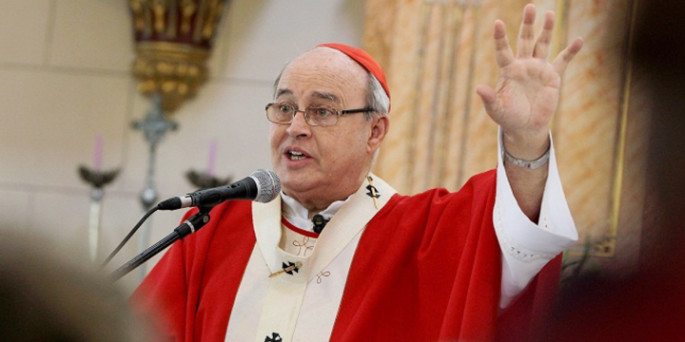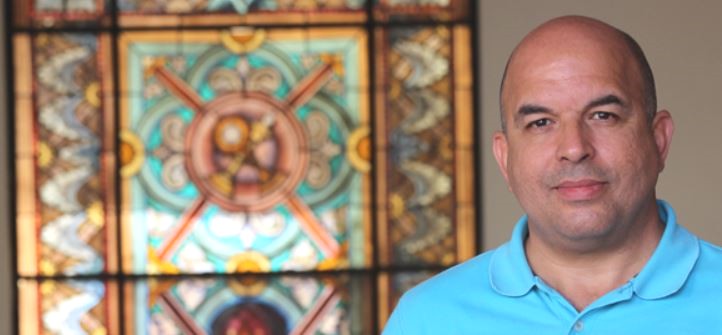
A clarification about a situation involving Cardinal Ortega in a diplomatic site
During a diplomatic reception held at the residence of the chief of the U.S. Interests Section in Havana on July 2 to mark Independence Day, a lamentable incident occurred when one of the guests confronted the Archbishop of Havana, Cardinal Jaime Ortega y Alamino, over a statement he made on Spanish radio on June 5.
[For background in Progreso Weekly, click here.]
The unpleasant situation was widely reported by several Spanish-language media in South Florida.
Progreso Weekly has received a clarification from the spokesman for the Archbishopric of Havana, Orlando Marquez Hidalgo, which we have translated into English and publish below. It is self-explanatory. The translator’s clarifications appear [in brackets.]

ARCHISHOPRIC OF HAVANA: PRESS RELEASE
With regard to an incident that occurred last Thursday 2 July during a reception at the residence of the Chief of the United States Interests Section in Havana, widely displayed by some press media with broad circulation within the exile and/or Émigré Cuban community, in a version disseminated by one of the protagonists, I have made some inquiries and can state the following:
- It is true that Mr. Egberto Escobedo, in the company of someone else, approached Cardinal Jaime Ortega with the intention of delivering to him a document that, he alleged, contained information about political prisoners.
Cardinal Ortega told him that that was not the proper place, inasmuch as both were guests at an event of a different nature, the celebration of the independence of the United States, and suggested that [Mr. Escobedo] deliver the document to the offices of the Archbishopric of Havana.
(Days earlier, Cardinal Ortega had declared to the press that, if lists of political prisoners did exist, they should be sent to him.)
This suggestion was the most appropriate, given that it is at Archbishopric of Havana where Cardinal Ortega receives all the documentation related to these issues, as well as letters and documents about prisoners or their families, etc.
There, Mr. Escobedo has on previous occasions delivered letters and other documents of that type personally or through third parties.
In addition, Cardinal Ortega and Mr. Escobedo had met previously in Church facilities in Havana, always in respectful terms. Mr. Escobedo has even expressed appreciation for the work of the Church in Havana, such as the training courses for the self-employed entrepreneurs of Cubaemprende, who are sponsored by the Archbishop of Havana, from which [Mr. Escobedo] himself has benefited.
- Annoyed by Cardinal Ortega’s suggestion to deliver the document to the indicated site, Mr. Escobedo began to criticize the Cardinal loudly for statements made weeks earlier, as well as for his intervention during the process of releasing political prisoners in the years 2010 and 2011.
The Cardinal answered that [Mr. Escobedo] should not be guided by what some communications media might say, because the Church was doing much to benefit the prisoners, actions that are not reported and are carried out in silence.

The expressions “the worm-pit’s media” and “counter-revolutionary press” were not spoken by the Archbishop and are not part of his vocabulary.
- Mr. Escobedo persisted with his strong criticism, at which point one of the Havana priests present urged him to show respect and behave in a proper manner, else it might be necessary to summon a U.S. Interests Section security agent in attendance there to put an end to the unpleasant confrontation.
- Before leaving the place, a diplomat from the U.S. Interests Section in Havana, after learning of the lamentable incident, offered his formal apologies to Cardenal Jaime Ortega.
–Orlando Marquez Hidalgo.

